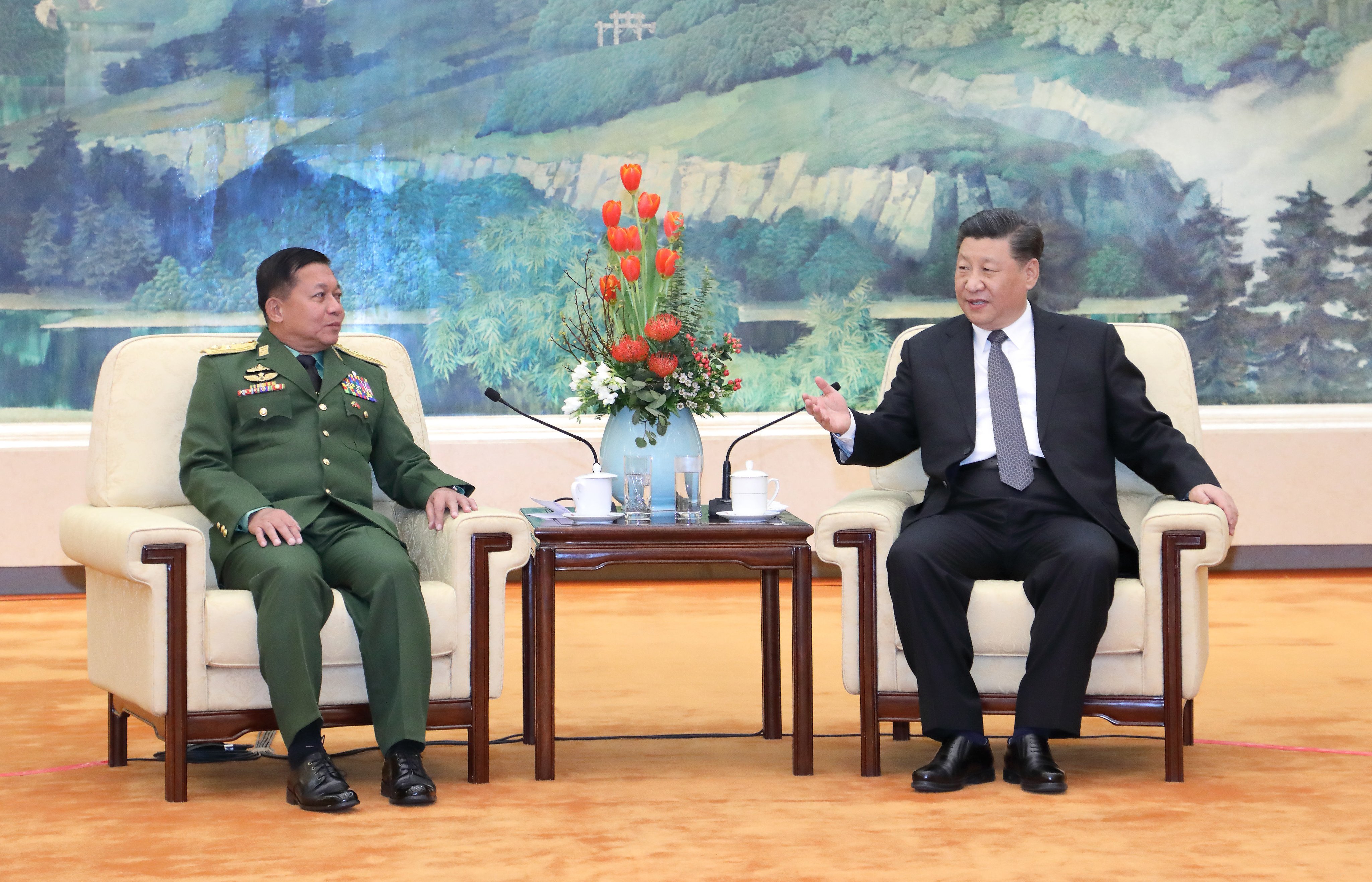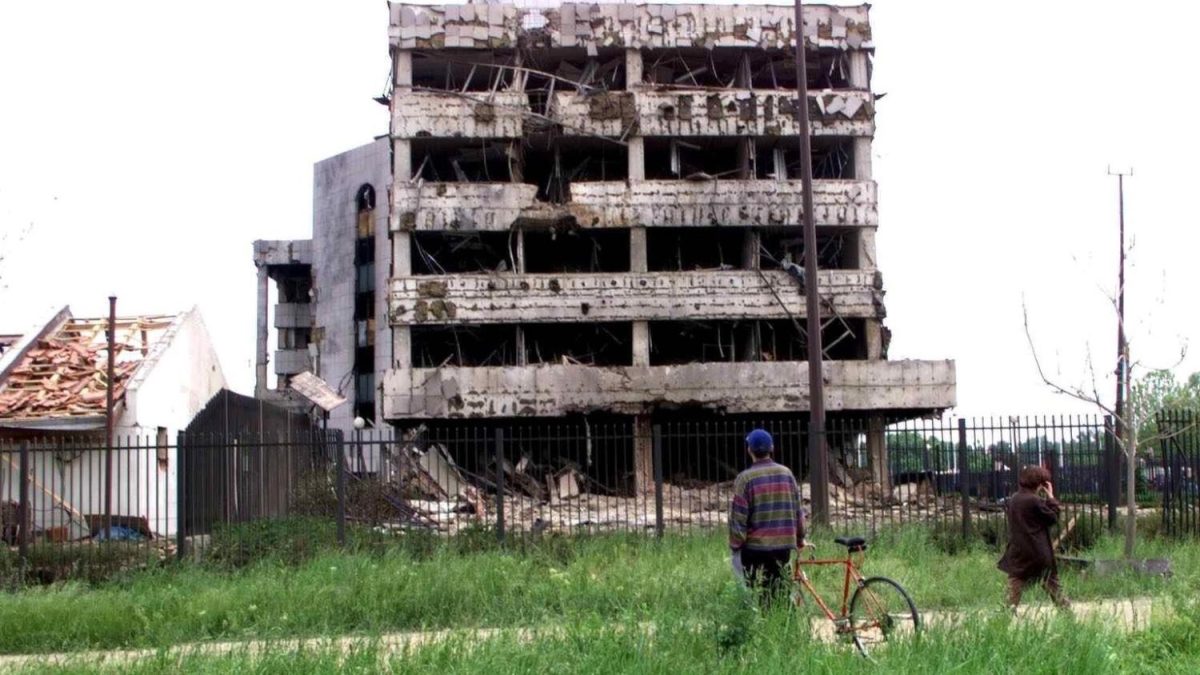China’s consulate in Mandalay, Myanmar, was attacked with an explosive device on October 18, ahead of a potential visit to China by Myanmar’s junta chief Min Aung Hlaing.
According to local media reports, the explosion occurred at the consulate building in the heart of Mandalay, south of the expansive Royal Palace, on October 18 at approximately 7 p.m. local time (12:30 GMT). No casualties were reported.
On October 19, a Myanmar official in Mandalay told the media that there had been “an incident at the Chinese consulate office compound in Mandalay late evening yesterday.” The official stated, “No one was injured,” without giving specific information about the incident.
The consulate is reportedly manned by junta troops and the Pyu Saw Htee militia.
A local publication, Irrawaddy, reported that the consulate, which is manned by security personnel from Myanmar, was attacked by a grenade. The report stated that a loud explosion was heard, and a military vehicle carrying Pyu Saw Htee members reportedly sped away from the consulate.
These claims, however, could not be verified, and the junta government had yet to reveal details about the incident.
Interestingly, the incident comes ahead of a potential visit by the junta chief Min Aung Hlaing to China–his first trip to China since the military overthrew the nation’s democratically elected government in a coup in 2021 and launched a bloody crackdown on protestors.
The junta government has since remained embroiled in a civil war with anti-coup forces and ethnic rebels that have together constituted the ‘Brotherhood Alliance.’
While the International community has ostracized the Southeast Asian country, China has maintained ties with the Junta government and the resistance forces.
China is believed to be collaborating with both sides to mediate a truce and has previously encouraged all parties to quit hostilities. Nonetheless, analysts believe that Chinese military aid to the junta government prolongs the conflict.
Moreover, reports in local media suggested that anti-China protests have reportedly been held in Mandala by regime-backed nationalist groups and military supporters who have accused Beijing of supporting the Brotherhood Alliance in the northern Shan state that borders China.
Although the attack on the consulate has raised many questions, there is no information on the identity of the attackers or the motivation of this attack.

This is not the first time, however, that a Chinese consulate has come under attack. The Chinese consulate in the Pakistani port city of Karachi was attacked by three terrorists in 2018 who opposed Chinese investment in western Pakistan.
In October 2023, an unidentified person drove a vehicle and “violently” crashed it into the Chinese Consulate-General in San Francisco. No casualties were reported in the incident.
At the time, the consulate stated that the incident had caused property and facility damage and constituted a “serious threat” to staff members’ lives and safety. “We condemn this violent attack and reserve the right to pursue responsibility for the incident,” it stated.
In a separate incident in July 2023, a Chinese consular building in Ukraine was damaged in air strikes on southern Ukrainian port cities. The regional governor, Oleh Kiper, shared a photo of the Chinese embassy with at least one smashed window. However, no other damage was visible, and there were no casualties.
Though these incidents are every bit serious, none of them come even close to the scale of the attack that the Chinese embassy suffered in Belgrade over 25 years ago—an attack that it has vowed never to forget.
The Bombing Of Chinese Embassy
In 1999, an armed confrontation between Albanian separatists from the Kosovo Liberation Army and the Serbian army led to a bombing by NATO forces of what was then the Socialist Federal Republic of Yugoslavia, consisting of Serbia and Montenegro.
The operation was spurred by accusations from Western countries that the Yugoslav government was ethnically cleansing Kosovo Albanians. Executed without the approval of the UN Security Council, the NATO bombing carried out between March 24 to June 10, 1999, killed nearly 2,500 people, including 87 children.
The NATO Alliance struck hundreds of targets over Serbia and Kosovo, most of them military installations such as army headquarters and air defense stations. One of these attacks destroyed the Chinese embassy in Belgrade.
On May 7, five Joint Directed Attack Munition satellite-guided bombs were dropped on the Chinese embassy in Belgrade by US Air Force B-2 Spirit bombers. Three Chinese journalists were killed in the attack: Shao Yunhuan of Xinhua, Zhu Ying of the Guangming Daily, and Xu Xinghu and his wife. Another twenty or more Chinese nationals suffered injuries.
In the aftermath of the incident, former US President Bill Clinton apologized to China and expressed his “profound condolences.” He regretted the strike and explained that the strike was an error. NATO said it was reacting to intelligence suggesting the Federal Directorate for Supply and Procurement (FDSP) of the former Yugoslavia was housed within the embassy.
Chinese diplomats were later given a detailed explanation of the target selection process by US Under Secretary of State Thomas Pickering, who stated that the US believed it was attacking a military logistical station in Yugoslavia and a state-sponsored distributor of missile parts to Libya and Iraq.

Pickering blamed “multiple factors and errors” that go back to 1997 and identified three main shortcomings: the identification process for the FDSP building was not accurate; the US military and intelligence community had no idea where the Chinese embassy was located; and the location of the FDSP building was not confirmed by someone who was genuinely informed.
The Chinese, however, disregarded these explanations. The attack on the embassy represented an attack on Chinese sovereignty, which led to a great deal of mistrust between the two nations. Despite assertions that the strike was an accident, anti-American riots erupted across China.
The bombing is remembered as a massive tragedy in China. On the 25th anniversary of the bombing in May 2024, Chinese President Xi Jinping slammed NATO for the bombing in a letter published by the Serbian outlet Politika.
“This we should never forget. The Chinese people cherish peace, but we will never allow such tragic history to repeat itself,” he noted.
- Contact the author at sakshi.tiwari9555 (at) gmail.com
- Follow EurAsian Times on Google News




